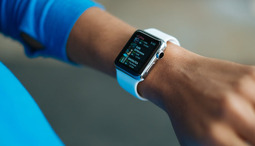- On
- 13 Mar 2022
- Reading time
- 4 minutes
IoT is seen as a major solution to many health challenges the world faces. With the pandemic still on the rampage, the high cost of medical services, an aging universal population, and diseases getting deadlier by the day, finding a novel and lasting approach to universal healthcare problems is imperative.
With the current situation, it won’t take long for basic healthcare to become unaffordable for a huge chunk of the world’s population. There is also a surge in deadly diseases. If all these are left unchecked, the consequences may be dire. US-Reviews have information on such healthcare matters and more.
Healthcare industry has faced a huge burden in the past few years. From life threatening diseases like the pandemic making their way into our lives to the need of constant data collection; everything has left the medical sector in despair.
However, IoT has shown tremendous potential to be the key to surmounting all these woes. A major boost in IoT app development will go a long way in arresting several issues in the healthcare sector. The provision of sophisticated but handy medical tools is the answer. One major advantage that IoT medical integration has is that it can significantly lower the cost of obtaining adequate medical attention.
This technology-based approach to healthcare increases the competence of medical professionals and the efficiency of medical processes.
The time when basic healthcare might become impossible for the majority of people to reach out to, is nearing, with each passing day. This is certainly a world which was predicted some years ago and it is almost here. But aligning with technological advancements can help the healthcare industry in staying up to the much needed pace. And this is where medical IOT solutions and services come into help.
Benefits of IOT Healthcare Industry:
If you are wondering how IOT can benefit the healthcare industry then here are some of the most basic advantages that you must know about.
1. Simultaneous Monitoring and Reporting:
Constant monitoring of the healthcare system can save lives. Connecting all monitoring systems with devices can play a huge role in medical emergencies like diabetes, asthma attacks and heart failure etc.
But how? This is all possible with real time monitoring. You can easily connect a medical device with an application on your smartphone and collect medical data for transferring the information to the medical expert. It is easier and faster and saves a lot of time and manual effort. As the time utilized in the entire process is shorter,medical emergencies are managed quickly.
2. End to End Connectivity:
IOT plays a huge role in automation of patient care. IOT solutions like healthcare mobility solutions can aid largely in exceptional end to end connectivity. Information exchange, machine to machine communication and data movement are just some of the basic yet very crucial factors that are boosted with the help of IOT technologies. It boosts the efficacy of healthcare service deliveries.
Communication protocols like ZigBee and Bluetooth LE can transform the way ailments are identified in patients.
3. Data Organization and Analysis:
The amount of data that is shared within a hospital is immense. It is hard to store and manage manually. Also, manual organization of data comes with a huge portability of mismanagement risks.
Healthcare professionals have to gain access to data from time to time as well. Thus, proper assortment is very crucial.
With the help of IOT devices and other solutions, one can easily store, organize and analyze the data within no time. It cuts down the need of storing raw data anyhow.
Challenges of IoT in Healthcare
1. Privacy and Security of Information
Privacy and security of data are major problems in IoT integrated healthcare. These devices used in capturing health-related data are not governed by any privacy and security policies or laws. These instruments capture a huge amount of data that are not regulated regarding ownership.
This problem opens room for cybercrime to thrive effectively. There is a need for new approaches to curtail cybercrime in various sectors including healthcare. Personal Health Information (PHI) can fall into the wrong hands through this. Such health-related cybercrimes can include medical certificate forgery and false medical insurance claims.
2. Lack of unified protocols and instruments
There are many devices and protocols jostling for attention and approval from medical practitioners in the healthcare industry. This is because there is still no agreement between manufacturers concerning products and protocols to adopt and abide by.
Thus, manufacturers of these devices are presently on a path to outdo one another to gain acceptance in the industry. This makes it difficult for IoT to move forward in the healthcare sector.
3. High Cost
This may come as a surprise, given that reduction in medical cost has been singled out as one of the reasons for integrating IoT into the medical industry. However, the opposite is the reality at the moment. The concept is still at a prodigious stage and has not seen much application in developing countries. Research has to be done, money has to be spent, and stakeholders have to put the masses first to make this concept effective, cheap, and available.
Why IoT Integration is Important in the Healthcare Sector
An IoT medical device collects important data concerning patients and diseases, which are then impacted upon by medical practitioners. For example, regular data collection on different varieties of cancer can make further research possible and a breakthrough in medication.
An IoT medical device usually consists of different instruments working together to obtain critical information, which is conveyed to the cloud for easy access by doctors. The speed of this assessment and delivery can be crucial to saving the lives of patients. Thus, IoT integration can improve healthcare delivery efficiency, output, and speed.
Conclusion
IoT is a game-changer in the healthcare sector. It has the potential to make medical care available to all. If well implemented on a larger scale, this approach can improve healthcare delivery and make the processes more efficient than ever before.








